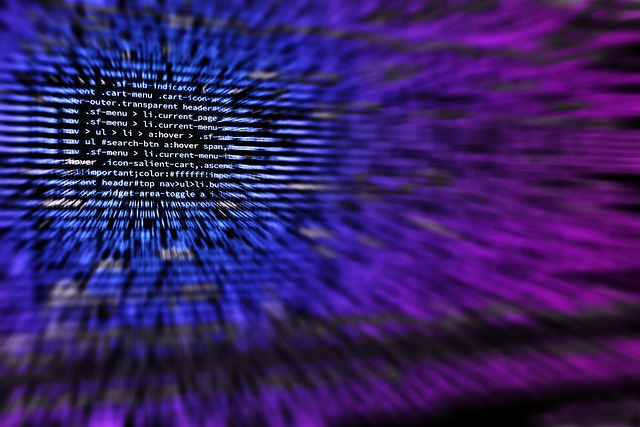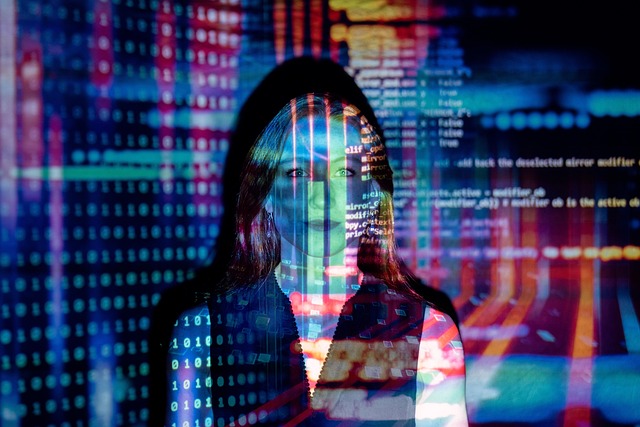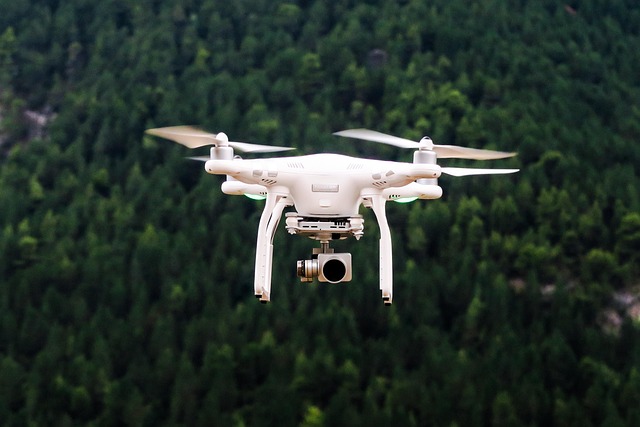The Pulse of a Connected World
The dawn of the cyber era
A new epoch dawned with the birth of cyber technology—an age where data flows faster than thought and machines echo human reasoning. From the hum of early mainframes to the omnipresent rhythm of the internet, humanity’s trajectory shifted irrevocably. The cyber era is not merely an advancement of tools; it is a redefinition of existence itself.
How digital transformation reshaped civilization
Entire civilizations have been remodeled through digital metamorphosis. Communication collapsed geographical barriers, industries digitized, and economies found vitality in bits and bytes. The analog world, once restrained by physicality, now thrives within intangible networks that breathe innovation into every sector.
The interdependence between technology and human behavior
Technology and humanity have entered a mutual evolution. Each innovation modifies human behavior, and in turn, human behavior dictates the next innovation. Cyber technology, once external to human experience, now forms an invisible exoskeleton to our daily lives.
Understanding Cyber Technology

source : https://pixabay.com/photos/coding-computer-hacker-hacking-1841550/
Defining cyber technology in the modern landscape
Cyber technology encompasses all systems, processes, and mechanisms that connect, compute, and communicate within digital space. It is the architecture of interactivity—where human intent meets algorithmic precision.
From computation to cognition: The evolution of digital systems
What began as simple computation has transformed into cognitive computation. Machines now interpret, reason, and learn. The journey from calculators to cognitive engines marks one of humankind’s greatest intellectual leaps.
The anatomy of a cyber ecosystem
Every cyber ecosystem thrives on a triad of data, connectivity, and intelligence. These elements intertwine to form dynamic environments where users, systems, and machines coalesce into a single digital organism.
The Building Blocks of Cyber Infrastructure
Data as the new oil: The value of information
In the digital age, data eclipses oil as the world’s most valuable resource. Every click, transaction, and interaction generates insights that fuel economies and shape decisions. Information is power—quantifiable, tradeable, and often vulnerable.
Networks and protocols that bind the virtual world
Beneath the surface of every online experience lies an intricate web of protocols—TCP/IP, DNS, HTTPS—unseen yet indispensable. These digital arteries carry the lifeblood of connectivity across continents and oceans.
Hardware foundations behind the cyber realm
Though ethereal in perception, the cyber world is grounded in silicon and circuitry. Data centers, processors, and microchips form the physical backbone of the virtual universe. Without these tangible foundations, the cyber cosmos would cease to exist.
The Role of Artificial Intelligence in Cyber Advancement

source : https://pixabay.com/photos/work-desk-computer-night-hacker-933061/
Machine learning’s silent revolution
Machine learning has become the invisible architect of progress. It predicts consumer behavior, fortifies cybersecurity, and automates decision-making with uncanny precision. Its silent revolution reshapes every digital corner of life.
Neural networks and decision-making automation
Inspired by the human brain, neural networks process vast data to derive meaning from chaos. These artificial neurons empower machines to make autonomous decisions—decisions once thought to be the sole domain of human intellect.
Human-AI collaboration: Augmenting intellect through code
The synergy between human creativity and artificial intelligence marks a new era of augmentation. Together, they form hybrid intelligence—humans providing intuition, machines delivering computational depth.
Cybersecurity: The Shield of the Digital Age
The ever-shifting threat landscape
Every advancement invites new vulnerabilities. From ransomware to deepfakes, the threatscape evolves faster than the defenses that guard it. The battle for digital safety is relentless and eternal.
Encryption and digital trust mechanisms
Encryption is the cornerstone of trust in a distrustful world. By turning intelligible data into cryptographic code, it ensures privacy and protection amidst a sea of potential adversaries.
Ethical hacking and penetration testing: Guardians of cyberspace
Ethical hackers—white-hat warriors of the digital frontier—probe vulnerabilities before malicious actors can exploit them. Their mission is not destruction but preservation, safeguarding the sanctity of cyberspace.
The Internet of Things (IoT): A Web of Intelligent Devices

source : https://pixabay.com/photos/woman-laptop-desk-workspace-1851464/
From homes to cities: The spread of smart connectivity
The IoT revolution connects the mundane to the magnificent. Refrigerators communicate, cars think, and entire cities breathe with sensors. Every object becomes a node in a global conversation.
Security challenges within interconnected ecosystems
With interconnection comes fragility. Every connected device becomes a potential entry point for exploitation. Protecting the IoT requires vigilance, encryption, and ethical foresight.
The promise of IoT for industrial and healthcare innovation
From predictive maintenance in factories to real-time monitoring in hospitals, IoT redefines operational intelligence. It saves costs, enhances safety, and, most importantly, saves lives.
Blockchain and Decentralized Systems
The emergence of trustless technologies
Blockchain obliterates the need for intermediaries, enabling transactions built on mathematics, not faith. Its immutability becomes the new gold standard of digital trust.
Beyond cryptocurrency: Blockchain’s real-world applications
From supply chains to medical records, blockchain transcends digital currency. It anchors transparency where opacity once reigned.
How decentralization transforms governance and transparency
Decentralization redistributes power, fostering systems where consensus replaces authority. In governance, it promises accountability without central control.
Quantum Computing and the Future of Cyber Capabilities
Understanding quantum supremacy
Quantum computing harnesses the enigmatic behavior of subatomic particles to perform computations beyond classical capacity. It is not faster—it is fundamentally different.
The potential impact on encryption and data protection
Quantum power threatens to unravel today’s encryption, demanding an entirely new generation of cryptographic systems. What once seemed unbreakable may soon become obsolete.
Quantum challenges in practical implementation
Yet, the quantum dream faces formidable barriers—instability, scalability, and cost. Turning theory into usable technology remains one of science’s grand pursuits.
The Rise of Cyber Warfare and Digital Espionage
State-sponsored attacks and digital geopolitics
Nations now wage silent wars across fiber-optic battlefields. Cyberattacks sabotage infrastructure, influence politics, and reshape alliances without a single missile fired.
The blurred line between defense and offense in cyberspace
Offense and defense intertwine; today’s defense mechanisms become tomorrow’s offensive tools. The ambiguity of cyber warfare redefines traditional concepts of sovereignty.
Cyber deterrence: Strategies for maintaining peace in a virtual battlefield
Global stability depends on digital deterrence—mutual vulnerability ensuring restraint. Diplomatic cyber agreements may soon replace nuclear treaties.
Ethical Dilemmas in the Cyber Realm

source : https://pixabay.com/photos/software-developer-web-developer-6521720/
Privacy versus security in an era of surveillance
The quest for safety often clashes with the right to privacy. Surveillance technologies, while protective, risk transforming society into a transparent cage.
Data ownership and the digital identity crisis
In a world where personal information is currency, ownership becomes elusive. Who truly controls digital identity—the individual or the algorithm?
The moral implications of autonomous systems
As machines make decisions of consequence, questions of accountability arise. Can morality be programmed, or is it uniquely human?
The Evolution of Cloud Computing
Migration from local servers to global clouds
The cloud liberated data from geography. Organizations now operate seamlessly across continents, their digital assets suspended in virtual sky vaults.
Hybrid and multi-cloud ecosystems shaping enterprise agility
Companies embrace hybrid clouds to balance control and flexibility, weaving private and public networks into adaptive architectures.
Edge computing: Bringing intelligence closer to the source
Edge computing decentralizes processing, enabling faster insights where data originates. It’s the return of locality within a globalized digital world.
The Cyber Economy: Digital Transformation of Commerce
E-commerce, fintech, and the rise of virtual marketplaces
Digital platforms have rewritten the playbook of trade. Transactions transcend borders, currencies morph into code, and trust is built through transparency.
Cryptocurrency and the decentralization of money
Decentralized finance dismantles traditional banking hierarchies, empowering individuals to transact beyond institutional control.
Cyber threats in financial systems and fraud prevention
But with opportunity comes danger. Fraud, phishing, and ransomware stalk digital finance, demanding sophisticated defenses and unyielding vigilance.
Human-Centric Cyber Design
The psychology of digital interaction
The best technologies are those that understand the human psyche. Each interface must resonate emotionally, not just functionally.
Building user trust through secure UX design
Trust is the currency of digital engagement. Secure interfaces, transparent permissions, and ethical design cultivate lasting confidence.
Accessibility and inclusivity in cyber systems
A truly connected world must be universally accessible. Inclusive design ensures that technology empowers, not excludes.
Education and Workforce in the Age of Cyber Technology
The growing demand for cybersecurity professionals
As cyber threats multiply, skilled defenders become invaluable. Cybersecurity expertise is now as essential as electricity in a modern economy.
Lifelong learning in a rapidly changing digital ecosystem
In an ever-evolving landscape, knowledge must flow endlessly. Continuous learning becomes survival.
Reskilling and upskilling for the cyber economy
Workers must evolve alongside their tools. Digital literacy is no longer optional—it is the passport to participation.
The Role of Governments and Global Policies

source : https://pixabay.com/photos/coding-programming-working-macbook-924920/
Cyber laws and international digital sovereignty
Nations assert sovereignty not just on land or sea, but in cyberspace. Laws are drafted to defend borders that cannot be seen.
Data protection regulations and compliance frameworks
Frameworks like GDPR exemplify a new era of accountability, where privacy becomes both a right and a regulatory requirement.
Cross-border cooperation in cyber governance
Global problems demand global solutions. Cyber diplomacy emerges as the new pillar of international relations.
Cybercrime and Digital Forensics
The anatomy of a cyberattack
Every cyberattack follows a pattern—reconnaissance, infiltration, execution, and cover-up. Understanding this anatomy is key to prevention.
Forensic investigation in the virtual space
Digital forensics transforms invisible traces into courtroom evidence. Each byte tells a story of intrusion, motive, and method.
Proactive intelligence and predictive threat analysis
The future of defense lies in foresight—analyzing data to predict breaches before they occur.
Emerging Trends Shaping the Cyber Future
The convergence of 5G, AI, and IoT
The fusion of these technologies promises speed, intelligence, and omnipresent connectivity—a trinity reshaping the digital ecosystem.
The metaverse: A new cyber dimension
The metaverse blurs the line between reality and simulation. It is not just a virtual world—it’s a reimagined existence.
Bio-cyber integration and the rise of digital humanism
As biology and technology intertwine, humans evolve into augmented beings—merging organic instinct with synthetic intelligence.
Sustainability and Green Cyber Technology
Energy-efficient data centers and eco-friendly computing
The digital revolution demands enormous energy. Green computing seeks to reconcile performance with environmental conscience.
Reducing the carbon footprint of the digital age
Innovations in cooling, energy storage, and renewable power drive the pursuit of a cleaner cyber ecosystem.
Balancing progress with planetary preservation
True progress must harmonize with nature’s rhythms, ensuring that technological advancement does not eclipse ecological balance.
Cultural and Societal Impact of Cyber Technology
How social media redefined communication and identity
The digital self has become an extension of the human spirit. Social media reshaped identity into curated narratives shared across virtual stages.
Cyber communities and digital subcultures
Online communities transcend boundaries, fostering belonging in unexpected spaces—from fandoms to movements of global consequence.
The erosion and evolution of privacy norms
Privacy, once sacred, now adapts to transparency. Society continuously negotiates the boundary between visibility and secrecy.
The Path Forward: Navigating Tomorrow’s Cyber Landscape
Preparing for technological singularity
The approach of singularity—a point where machines surpass human intellect—demands introspection. Humanity must decide how much control to yield.
Building resilience in an interconnected world
Resilience lies in adaptability. Systems must be fortified not only with firewalls but with foresight and flexibility.
Envisioning a secure and ethical digital future
The next frontier must balance innovation with integrity, ensuring progress never outpaces responsibility.
Conclusion: The Infinite Horizon of Cyber Innovation
The unstoppable momentum of cyber evolution
Cyber technology is a living force, ever-expanding, self-replicating, and redefining the edges of possibility.
Humanity’s responsibility in shaping the next digital epoch
With great connectivity comes great accountability. The direction of the cyber world rests in human hands.
A call for balance between advancement and ethics
The future depends on equilibrium—between speed and wisdom, between invention and conscience. Only then can the digital age serve as a true testament to human progress.




